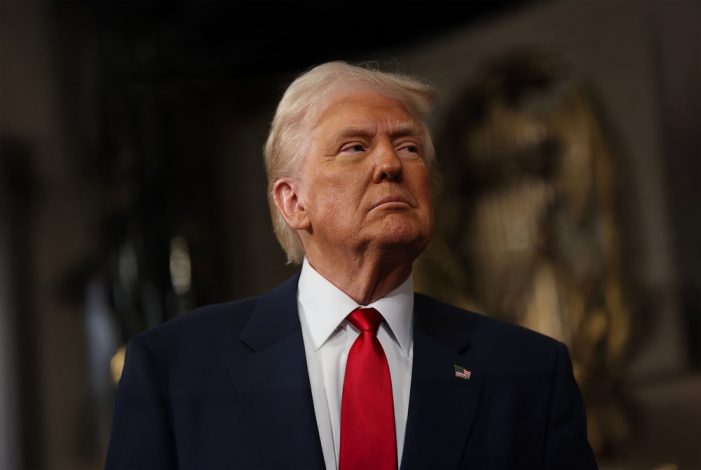By Mary Campbell | Editorial credit: Brian Jason / Shutterstock.com
A federal judge in San Francisco has issued a sweeping ruling that blocks the Trump administration’s move to terminate Temporary Protected Status (TPS) for tens of thousands of immigrants from Nepal, Honduras, and Nicaragua.
Key Ruling Details
– U.S. District Judge Trina L. Thompson, a Biden appointee, found that the administration’s decision—led by Homeland Security Secretary Kristi Noem—lacked any objective evaluation of political instability, natural disasters, or ongoing crises in the affected countries. Instead, Judge Thompson condemned the decision as rooted in racial animus and marked by discriminatory rhetoric.
– In a forceful rebuke, she declared: “Color is neither a poison nor a crime,” criticizing Noem and Trump’s language that characterized migrants as an “invasion” or threat.
– TPS, instituted in 1990, grants temporary legal status and work authorization to individuals from countries experiencing conflict or disaster. The affected groups—comprising nearly 63,000 individuals—had been granted authorization for Hondurans and Nicaraguans in 1999, and Nepalis in 2015.
Legal Scope and Timeline
– The ruling halts phased expirations scheduled for early August and September 2025, extending TPS protections for the impacted immigrants through at least November 18, 2025. A further hearing is scheduled on that date to determine next steps.
– Judge Thompson emphasized that many TPS holders have lived in the U.S. for decades, have stable employment, families, and contribute to their communities. She also spotlighted homeland instability—like hurricanes in Nicaragua and political violence in Honduras—that remain unaddressed by the administration’s decision-making.
Broader Context
– The ruling is one of several court decisions blocking broad removals and status revocations under the second Trump administration. Earlier judgments prevented the termination of parole-based legal status for hundreds of thousands of migrants from Cuba, Haiti, Nicaragua, and Venezuela admitted under Biden-era programs.
– Meanwhile, the administration is appealing other immigration-related rulings, including Supreme Court-allowed terminations of TPS for Venezuelans—Decisions that are not binding precedent in this case.
– Other recent court actions include blocks on the use of the Alien Enemies Act to deport Venezuelans, restrictions on asylum seeker expulsions, and halts on expedited deportation rules targeting parolees.
Impact and Reaction
– Advocacy groups and immigrant rights organizations hailed the decision as a momentous defense of rule of law and fairness, giving hope to long-settled residents facing abrupt threats to their legal status.
– The Department of Homeland Security is expected to appeal Judge Thompson’s ruling. Legal analysts note that consistent success by the government in appellate courts could significantly reshape future administration of TPS designations and revocations.
What’s Next
– November 18, 2025: A status hearing must be held to assess continuation or further relief.
– Appeals Expected: The Trump administration is likely to appeal, arguing legal and national security authority to terminate TPS programs broadly.
– Potential Supreme Court Review: As with prior immigration cases, this decision may ultimately reach the Supreme Court, which has already issued conflicting signals in related areas.
This ruling represents a significant judicial check on sweeping immigration policy changes and highlights the ongoing struggle between executive authority and constitutional protections.

